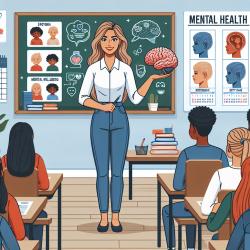The field of rehabilitation sciences is continuously evolving, and one of the most promising approaches to emerge in recent years is participatory co-creation. This method involves stakeholders in the development and adaptation of programs, ensuring they are tailored to meet specific community needs. A recent study on the TBI-Health program provides valuable insights into how participatory co-creation can enhance physical activity participation for adults with moderate-to-severe traumatic brain injury (TBI).
The TBI-Health Program: An Overview
The TBI-Health program is a community-based initiative designed to promote exercise and sport participation among adults with moderate-to-severe TBI. Over a 9-month period, participants engage in a structured physical activity regimen that progresses through three phases. The program emphasizes peer-assisted activities, group dynamics, and autonomy-supporting behaviors.
Key Findings from the Study
- Program Participation: Participants identified barriers such as scheduling conflicts and communication difficulties but also highlighted facilitators like mentor support and structured routines.
- Biopsychosocial Changes: Participants reported improvements in physical endurance, psychological well-being, and social interactions.
- Physical Activity Autonomy: Increased knowledge and confidence allowed participants to exercise independently and explore new physical activities.
Implications for Practitioners
The findings from the TBI-Health program offer several lessons for practitioners looking to improve their skills:
- Embrace Participatory Approaches: Involving stakeholders in program development ensures that interventions are relevant and effective. Practitioners should seek input from participants, caregivers, and community members when designing programs.
- Focus on Structure and Support: Structured routines and mentor support can significantly enhance participation and motivation. Practitioners should incorporate clear guidelines and provide ongoing support to participants.
- Cultivate Autonomy: Encouraging independence in physical activity can lead to long-term engagement. Practitioners should empower participants by providing them with the knowledge and tools needed to exercise autonomously.
The Need for Further Research
The study underscores the potential benefits of participatory co-creation but also highlights the need for further research. Larger sample sizes and diverse settings are necessary to validate these findings and explore additional outcomes such as cognitive improvements and social reintegration.










